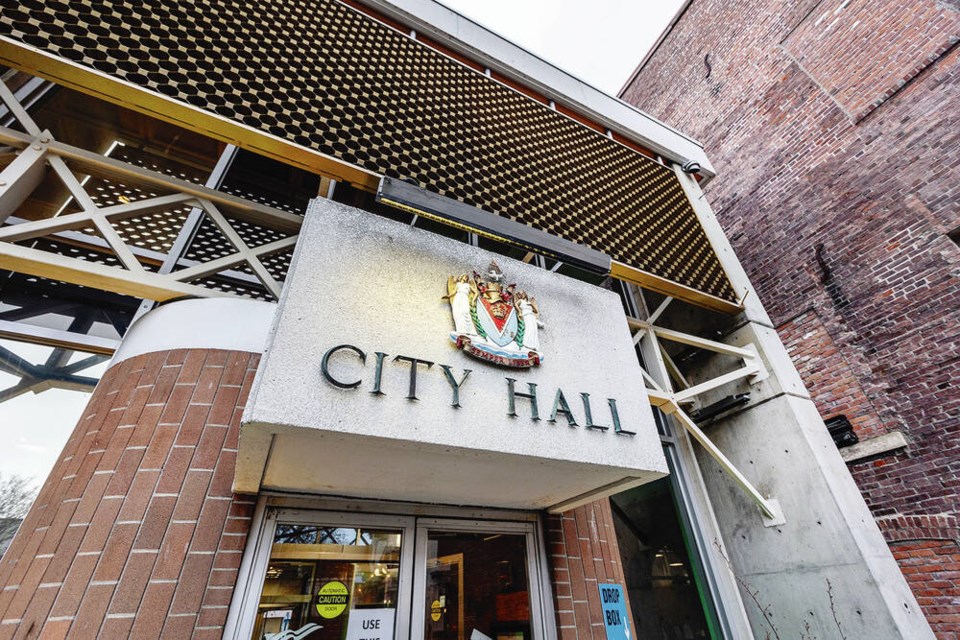A commentary by the vice-chair of Grumpy Taxpayer$ of Greater Victoria, a non-partisan citizens advocacy group for municipal taxpayers.
Victoria council has heard loud and clear from residents who don’t want local politicians setting their own compensation.
Who could forget the hullabaloo over a proposed 25% pay hike before council paused their decision and voted unanimously to have the city manager strike an independent task force?
Since April there has been nothing but silence from city hall about the appointees and the terms of reference and if any changes will take effect this term or next. The task force reports July 25.
Their most critical task will be to examine the evidence and determine if the role of councillor is part-time or full-time and what pay and benefits are warranted. Their decision will be watched carefully province-wide.
The task force will be made up of a diverse community of non-profit, labour, government and business leaders, and use the best practices for council and board remuneration of the Union of B.C. Municipalities as its terms of reference.
The UBCM cautions, in its guide to help members navigate constant pay controversies, “A task force may lack understanding of the roles, responsibilities and workload of elected officials.”
So questions must be raised.
How accurate and divorced from self-interest is a councillor’s estimate of the amount of work devoted to the job? Interviewing councillors to determine time commitments for city-related work has limitations.
Will the task force take into account all direct and indirect pay, benefits, per diems and stipends? By virtue of their position on council, three councillors are paid at least $23,385 annually from the Capital Regional District. The same Victoria taxpayers are reaching into their pockets to pay for those top-ups among others.
How many councillors gunning for higher wages have limited experience and are still learning on the job? Perhaps a mandatory time management course would pay dividends for residents.
Are local taxpayers subsidizing councillors who have provincial or federal political ambitions and treat the job as full-time?
Is the role of CRD director separated from workload guesstimates for council? Taxpayers wonder if some councillors — three sit on the CRD — forget they receive separate compensation for those efforts over and above council pay.
Didn’t the 2022 MNP Governance Review Report review and think there would be a reduction in the time commitment of councillors? Most of those recommendations are now implemented, streamlining governance, agendas and reducing workload.
Is the recent consultants report, Elected Officials Remuneration Research, tabled at council silent on whether the role of councillor is full-time? It looked at comparable B.C. cities and various capitals across Canada which are much larger and not legitimate comparators.
They concluded,”Thirteen of 18 cities indicated their councillors work part-time and three indicated their councillors work full-time (none of the three cities were from B.C.). Two cities did not answer the question.
“Five cities offered an estimate of hours worked for part-time councillors: four estimated up to 20 hours a week and one estimated up to 27 hours a week. The other cities replied they did not know or it varied.”
Didn’t the province and municipality move to reduce the role of council around time-consuming land use decisions during evening meetings?
Do taxpayers have a clear understanding of how much council time and hard-earned tax dollars are being unnecessarily focused on responsibilities outside their jurisdiction?
In 2021, a Vancouver staff report found an astounding 15 per cent of the operating budget was spent on provincial and federal responsibilities. It added there are many regulatory and legislative impacts that are impossible to quantify.
How many weekly meetings are there in a year? In 2023, council didn’t meet for 10 of those weeks.
What will happen to council pay in other B.C. cities if the job is considered full-time? Most will gradually increase to match higher paid councillor positions among the comparator group. Saanich, for example, adjusts remuneration annually based on comparators which include Victoria.
You may also have questions.
Task force members may want to keep in mind Parkinson’s Law, an old adage that “work expands to fill the time allotted for its completion.” It was first coined by Cyril Northcote Parkinson in a humorous essay for The Economist in 1955.
Without a mechanism for public consultation and despite a high degree of self-interest and conflict of interest, five rookie councillors tried to fast-track a huge pay hike.
As a result, the credibility of council suffered.
Mayor Marianne Alto has asked the province to amend the current procedure regarding council remuneration “to avoid perceived or actual conflicts of interest.”
She urged that a standardized system for future councils across B.C. be established, “To uphold public trust, democracy and transparency, we propose that the approval process for council compensation be shifted to an independent body or mechanism, without direct council influence.”
It’s hoped the city task force will take the time to listen to the questions and views of residents.
>>> To comment on this article, write a letter to the editor: [email protected]



